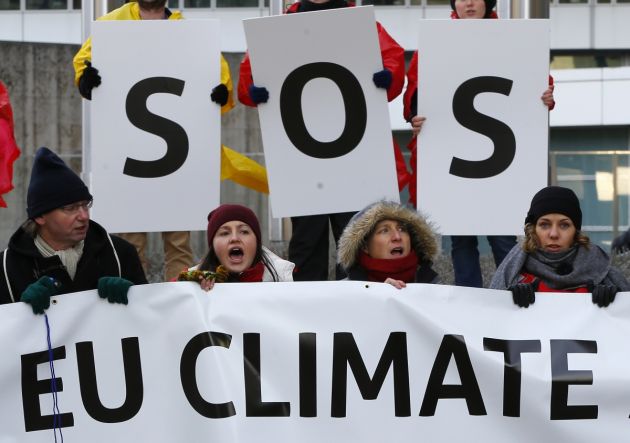European climate and energy proposal blasted by faith-based agencies

Two faith-based development and emergency agencies have strongly criticised the European Commission's 2030 objectives for climate change and its energy policies as "woefully inadequate" if the world is to avoid runaway climate change.
Geneva-based, church-backed ACT Alliance and APRODEV, which has its headquarters in Brussels, dismissed European Commission proposals aiming to cut carbon emissions by 40 percent below the 1990 level by the year 2030.
They said the European change on its climate goals is alarming for countries most at risk of climate change.
"It's a slap in the face for the millions of vulnerable poor people in developing countries who already suffer the impact of climate change," said ACT Alliance climate change policy and advocacy officer, Vitu Chinoko.
Far from improving the lives of people worst affected by climate change, the proposals are in fact likely to have a devastating impact on them as storms, droughts and floods increase in number and intensity, Chinoko said.
Arguing it will allow for more flexibility, the European Commission package replaces current climate 2020 proposals put in place in 2007 outlining three main targets.
The new proposal includes a 20 percent drop in greenhouse gas emissions from 1990 levels, a 20 percent fall in the EU's energy efficiency, and the duty to derive 20 percent of the EU's energy consumption from renewable sources.
The proposal was significantly different to the existing package. A binding greenhouse emission target of 40 percent by 2030 is now proposed with a renewable target of 27 percent only binding at an EU level, but not at national levels.
EU climate commissioner, Connie Hedegaard, said NGO's had been naïve in their demands.
"The art of politics is to propose something that you can actually get through," she said. "If we hadn't done that, this proposal would be dead politically."
APRODEV climate change and development policy officer Janna Schönfeld said that to limit the adverse effects of climate change on developing countries, the European Union objectives for 2030 needs to be much more ambitious when it comes to reducing greenhouse gas reductions, promoting renewable energy and being more energy efficient.
ACT Alliance and APRODEV called on EU member states to disregard the proposal when they adopt European Council conclusions in March.
"Instead, the EU needs to show it's up to the challenge by cutting greenhouse gases by at least 55 percent compared to 1990, ensuring at least 45 percent of energy consumption is from renewable sources and reducing energy use by 40 percent compared to 2005," Schönfeld said.
"The EU has a role to play in multilateral climate change processes.
"If it sets low targets, it ruins the chances of us getting a meaningful climate deal in 2015, when a global legally-binding agreement will be made. What the EU does determines the degree of trust, commitment and ambition of other countries.
"As faith-based networks, we ask the EU not to compromise on the little trust we have in building this climate change regime,"said Schönfeld.
ACT noted that a 2012 World Bank report paints a bleak picture of the planet's future if immediate moves to reduce carbon emissions are not made. It says that while the global average temperature has so far risen by less than 1 degree C, current emission levels combined with inadequate political commitments put the Earth on the way to a 4 degree C warmer world.
ACT Alliance is a coalition of more than 140 churches and affiliated organisations working together in 140 countries to create positive and sustainable change in the lives of poor and marginalised people.
APRODEV is an association of World Council of Churches related development organizations in Europe, seeking to influence decision-making processes in the European Union institutions regarding developing nations.